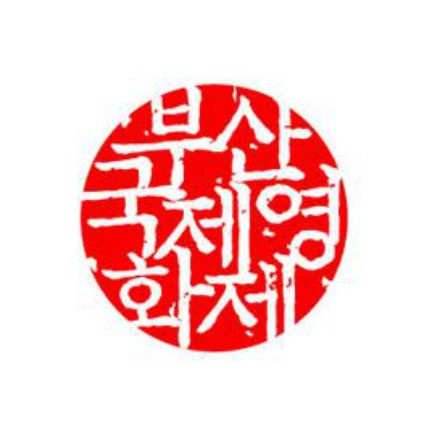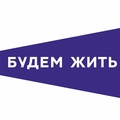
Years running: 30 (since 1996)
Busan International Film Festival
International Film Festival.
About
Busan International Film Festival held annually in Haeundae-gu, Busan (also Pusan), South Korea, is one of the most significant film festivals in Asia.
The first festival, held from September 13 to September 21, 1996, was also the first international film festival in Korea. The focus of the BIFF is introducing new films and first-time directors, especially those from Asian countries. Another notable feature is the appeal of the festival to young people, both in terms of the large youthful audience it attracts and through its efforts to develop and promote young talent. In 1999, the Pusan Promotion Plan (renamed Asian Project Market in 2011) was established to connect new directors to funding sources. The 16th BIFF in 2011 saw the festival move to a new permanent home, the Busan Cinema Center.
The Busan Cinema Center is a USD 140 million structure designed by Austria-based architecture collective Coop Himmelblau. The about 30,000 m² Cinema Center includes a 4,000-seat outdoor theatre; four indoor screens under an LED-covered roof; media centre; archive space; and conference rooms; allowing the festival to include industry forums and educational activities.
Program
- Gala Presentation - Premiere screenings of renowned directors' new films or masterpieces;
- A Window on Asian Cinema - A spotlight on new or the most-talked-about films of the year by talented Asian filmmakers;
- New Currents - The international competition section presenting the first or the second feature films by up-and-coming Asian directors;
- Flash Forward - A collection of new narrative features from non-Asian filmmakers reflecting audacious creativities and expressing experimental voices with clear senses of cinema as an art form;
- World Cinema - A presentation of new works or masterpieces by worldrenowned filmmakers along with the year's best films;
- Korean Cinema Today - An up-to-date introduction to the well-made Korean films highlighting current trends in Korean Cinema;
- Korean Cinema Retrospective - Shedding new light on the history of Korean Cinema by spotlighting the masterful films or the films with certain themes;
- Wide Angle - A section dedicated to show outstanding short films, animation, documentaries, and experimental films presenting broader cinematic viewpoints with different and distinct vision;
- Open Cinema - Outdoor screenings for new films, combining both art and mass popularity, along with internationally acclaimed works;
- Special Programs in Focus - A retrospective and/or a special showcase of films by a certain notable director or genre;
- Midnight Passion - The newest collection of horror, sci-fi and cult films acclaimed for both popularity and its cinematic quality.
Awards
- New Currents Award to the two best feature films selected from the first or second works of new Asian directors (grand prize of 30,000 USD is awarded to each film).
- Sonje Award to the best Korean and Asian short films (10,000,000 KRW).
- BIFF Mecenat Award to the best Korean and Asian documentary pictures (10,000,000 KRW).
- Actor & Actress of the Year for first-time actors in the independent Korean films among the New Currents and Korean Cinema Today Vision (5,000,000).
- KNN foundation award: 20,000 USD.
- Busan Bank Award. 10,000 USD is awarded to the director and the other half is used to support the distribution of the film in Korea.
- Citizen Critics’ Award: 10,000,000 KRW
- Busan Cinephile Award to the best world documentary film: 5,000,000KRW. The jury consists of college students.
- Daemyung Culture Wave Award to expand the distribution opportunity of the Korean independent films: 20,000,000 KRW and distribution support.
- CGV Arthouse Award
- DGK Award to two most outstanding Korean films from Korean Cinema Today-Vision section with grant of KRW 5,000,000
- NETPAC Award to the year’s best Korean film from either the New Currents or the Korean Cinema Today Vision section
- FIPRESCI Award
- The Asian Filmmaker of the Year
- Korean Cinema Award
Rules
- The Festival accepts features, short films, documentaries and animation. The film must not be broadcasted on TV or available on the Internet prior to the Festival.
- The film must have been completed no earlier that October 2023, and should be completed no later than September 2024.
- The Festival program gives priority to World or International premieres.
- For Short Films: less than 60 min. only less than 30 min. in the short film competition. Features: duration 60 min. or more.
Documents and Other Requisite Items
- Fill out the entry form at the website,
- Send DVD with submitted film by mail.
Subtitles language: english
Premiere Requirements
No premiere requirement
Documents
Place
South Korea
Busan
Official Website
Contacts
Busan Office
3rd Floor, BIFF HILL, Busan Cinema Center, 120, Suyeonggangbyeon-daero, Haeundae-gu, Busan 48058, Korea
Phone: 82-1688-3010
Fax: 82-51-709-2299
Seoul Office (and shipping address)
#1601, GARDEN TOWER, 84, Yulgok-ro, Jongno-gu, Seoul 03131, Korea
Phone: 82-2-3675-5097
Fax: 82-2-3675-5098
Email: submission@biff.kr
Contact Emails
Social Networks
- Deadline (shorts)June 19, 2024
- Deadline (features)July 17, 2024
- Event Dates2 — 11 October 2024
60 minutes or more.
-
Deadline (shorts) — free
-
Deadline (features) — free
Less than 60 minutes.
-
Deadline (shorts) — free
-
Deadline (features) — free
Festival Widget




